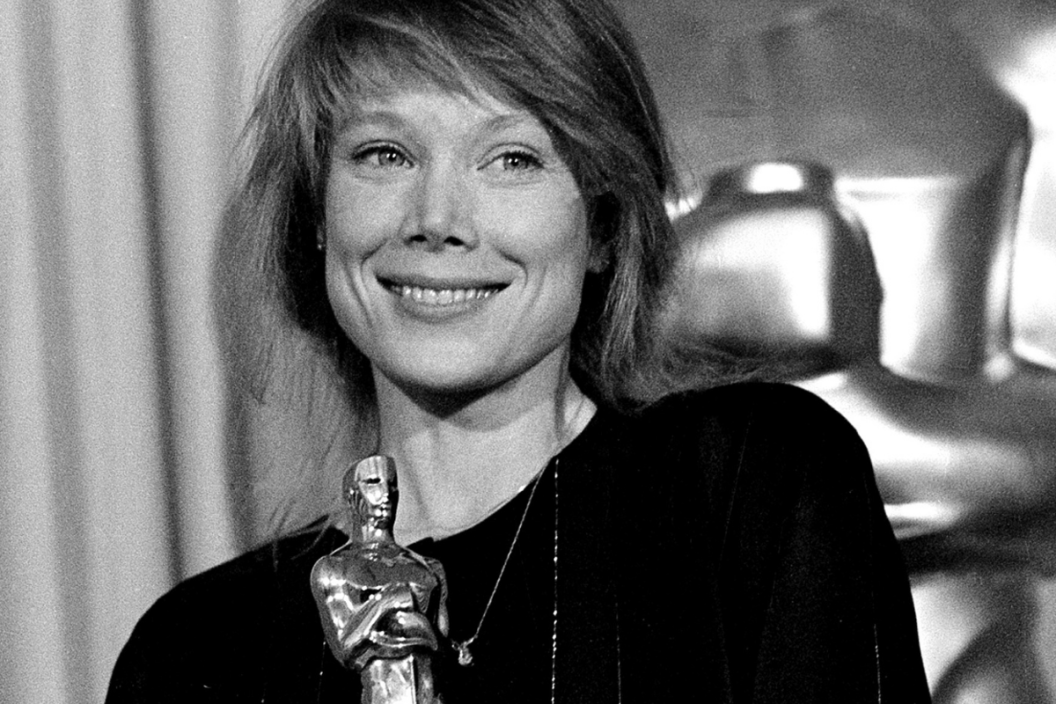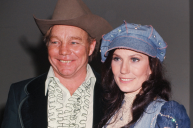It's hard to separate the still-unwritten legacy of country music legend Loretta Lynn from the 1980 film Coal Miner's Daughter. The critically-acclaimed movie shares the true story of an all-time great's unlikely and sometimes unsettling rise to fame. It's no fairy tale, and the primary characters whisked away from poverty hardly live perfect lives. Yet just like the unfiltered truth makes for great song lyrics, the movie's blunt look at rural hardships and smothering stardom still endears it to repeat and first-time viewers.
It Started With a Song
Known already for the stubbornness and sass displayed in such early hits as "Don't Come Home a Drinkin' (With Lovin' On Your Mind)" and "Fist City," Lynn revealed the humble origins of her no-nonsense attitude with the title track of the 1970 album Coal Miner's Daughter. Its lyrics tell how she grew up poor in Butcher Hollow, Kentucky as one of the Webb family's eight children. Times were tough back then, but little Loretta Webb and her siblings (including fellow country music singers Peggy Sue, Crystal Gayle, and Jay Lee Webb) didn't know any different. Such sentimental statements on rural upbringings have long appealed to country music fans, making Lynn's autobiographical song a career-defining hit.
The title suited Lynn's 1976 autobiography. Loretta and co-author George Vecsey expand on her rags-to-riches story while introducing readers to her husband, Doolittle Lynn. His story proves to be complex, as he helped his wife's career while allowing his demons to complicate their marriage. The real-life Lynns' tumultuous road from Appalachia to the Grand Ole Opry stage made the book ripe material for a Hollywood film featuring two strong-minded protagonists.
Two Great Actors For Two Unbelievable Characters
The film Coal Miner's Daughter is synonymous with the career of Sissy Spacek. She believably portrays Loretta, from her struggles as a teenage bride to her first tastes of stardom. It also gave her prior career as a singer a second wind via the film's Owen Bradley-produced soundtrack and chances to learn the songs from Loretta herself. That success led to her underrated 1985 country album Hangin' Up My Heart, featuring Rodney Crowell as a producer and Vince Gill as a session musician. Spacek's performance netted her a Grammy nomination and the best actress Oscar.
Tommy Lee Jones never seems to get his due for his performance as Doolittle. Like Spacek, Jones' knowledge of his character came directly from the source. In an interview with director Michael Apted that's one of the 25th anniversary DVD's special features, Jones explains how Doolittle personally taught him how to dive the bulldozer used in the movie. By film's end, Jones masterfully portrays Doolittle as someone who, despite his drunken outbursts, really does love and support his wife.
Read More: 5 Stories That Capture the Legacy of Loretta Lynn
A Fair and Accurate Depiction
Screenwriter Tom Rickman and British director Michael Apted made as great a country music biopic as you'll find. Better yet, the film gave plain mountain folks a fair shake. It celebrates their work ethic and portrays their struggles without seeming like yet another hillbilly parody.
The filmmakers capture Appalachia by filming there and finding extras among the people of rural Kentucky, Virginia and West Virginia. Other casting decisions looked to actors with musical talent. The singer turned actress Beverly D'Angelo played Patsy Cline. The Band member Levon Helm and bluegrass artist Phyllis Boyens were cast as Loretta Lynn's parents. By featuring the actual people of places like Letcher County, Kentucky and real musicians, the film earns a level of authenticity often lost when major studios turn their lens to folklife and roots music.
Apted and his crew captured the sites from Loretta's true story, from actual old radio stations to the real Grand Ole Opry stage. For the parts shot in Nashville, several country legends play themselves. Minnie Pearl, Ernest Tubb, and Roy Acuff all make guest appearances, with Merle Kilgore among the notable extras. In addition, Spacek performs with Loretta's actual backing band.
Critics and Fans' Choice
Coal Miner's Daughter gained instant praise from film critics, fueling its Oscar hype and upping its box office performance. Roger Ebert best summed up why the Lynns up-and-down true story spoke to the hearts of his journalistic peers and the movie-going public. "We fiercely want to believe in success in this country, but for some reason, we also want to believe that it takes a terrible human toll," Ebert wrote. "Sometimes it does, and that always makes for a better story."
Like the country charts, movie theaters and review columns swiftly move on to the next big thing. What makes a movie or country singer's popularity last is the fans. Fans keeping this film's greatness at the forefront range from the IMDB voters behind its 7.5 rating to former President George H.W. Bush, who lauded the film's story of how "the human spirit vanquished poverty" in his Sept. 1989 speech at the American Film Institute's 25th-anniversary celebration.
As for Loretta, she's content that the still-relevant film takes after her songs with its refusal to sugarcoat the truth. "When people see this film, they know life is not a bed of roses," she says in an interview included in the 25th anniversary DVD's extras. "Sometimes there's a bad day and sometimes there's a good day, and this film showed that."
This article was originally published in 2018.
Now Watch: Songs Every Randy Travis Fan Knows By Heart




